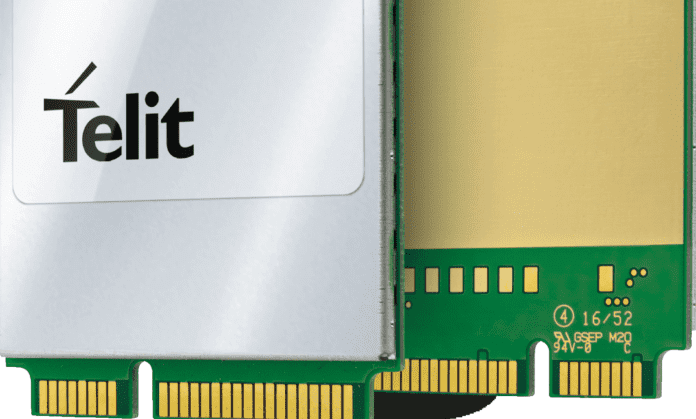IoT module maker Telit has released two new narrowband IoT (NB-IoT) modules for smart metering, smart city applications, and smart agriculture applications.
The firm said they are geared for companies to transition from 2G to LTE-based NB-IoT networks, offering the low power consumption for battery-driven applications.
The two deveices, the NE310H2-W1 and NL865H2-W1, will work with “almost any type of industrial sensor or mass-deployment application” that requires low-power wide-area (LPWA) connectivity, said Telit.
The principle difference between the two is their form factors. The NE310H2-W1 has a 15x18mm land grid array (LGA) form factor, for more constrained applications with low power consumption. It is compatible, pin-to-pin, with Telit’s xE310 family of 2G and LTE-M modules.
The NL865H2-W1 comes in a familiar 24.4×24.4mm ‘very-thin quad-flat no-leads’ (VQFN) package, providing an upgrade path from M2M and IoT devices based on Telit’s 2G and 3G xL865 module, with limited redesign effort and optional built-in eSIM available for connectivity to be integrated in the module.
Both are compliant with 3GPP Release 14 Cat NB2. Shipments start Q1 2020.
Manish Watwani, chief marketing and product officer at Telit, said the launches will address “some of the major challenges OEMs, integrators and device designers.”
Watwani commented: “Particularly for connectivity and battery life, our new modules dramatically increase the number of data points they can collect from their operations and customers via IoT devices. With IoT now possible at scale and cost, it makes many previously unviable deployments ROI positive.”
Juniper Research estimates the number of IoT-connected devices will reach 38.5 billion in 2020, up from 13.4 billion in 2015: Beyond smart home applications, industrial and public services sectors including retail, utilities, security and surveillance, healthcare and agriculture will provide the largest portion of the base.
The value of the NB-IoT chipset market will jump from $272 million in 2019 to $2 billion by 2024, says Juniper Research.

